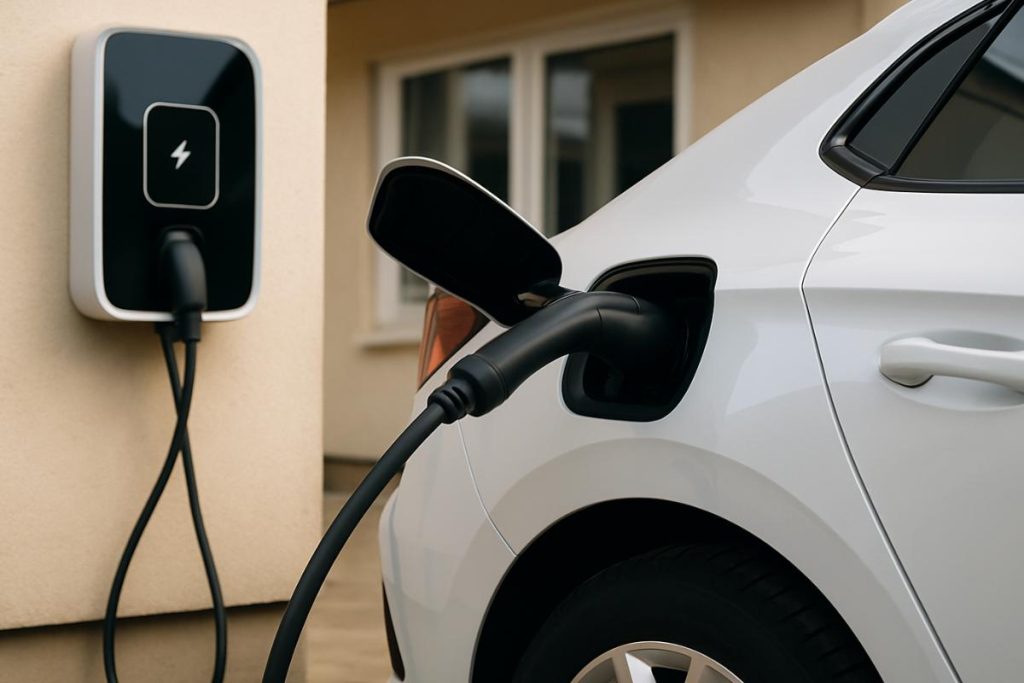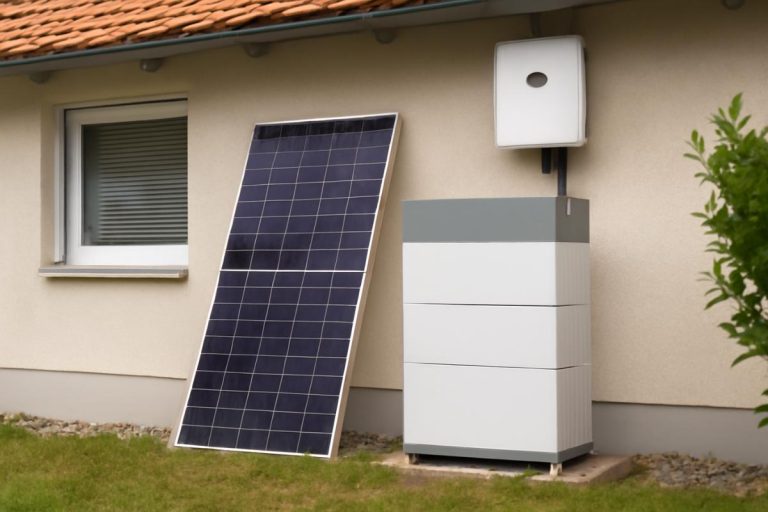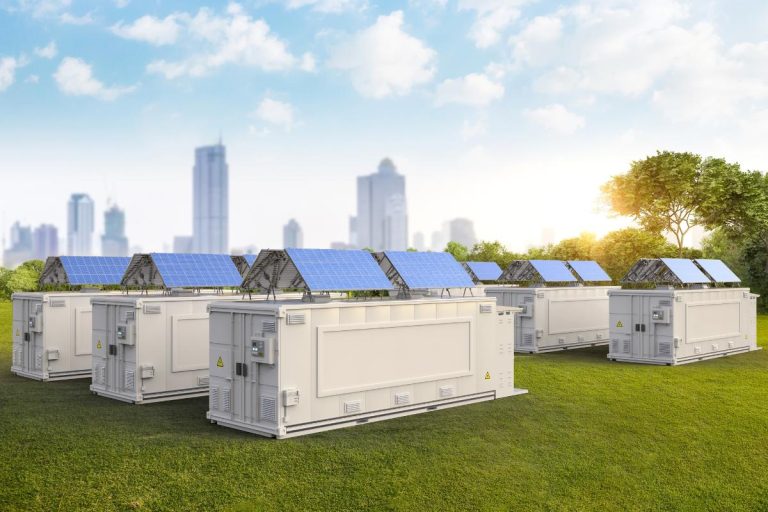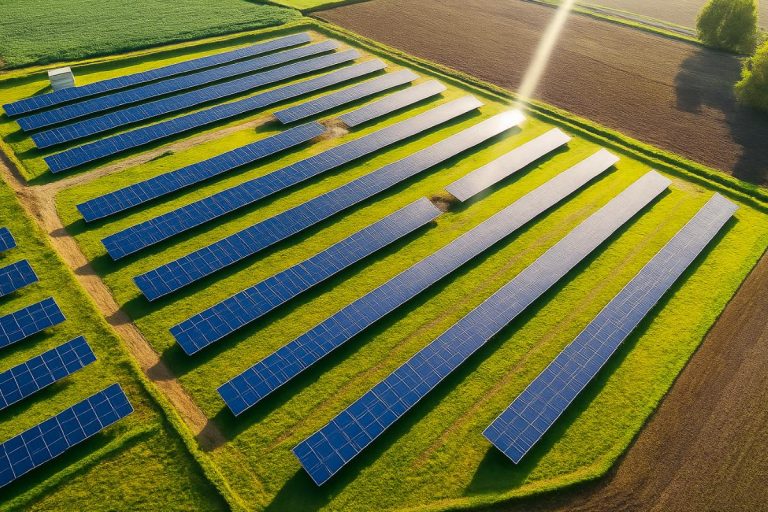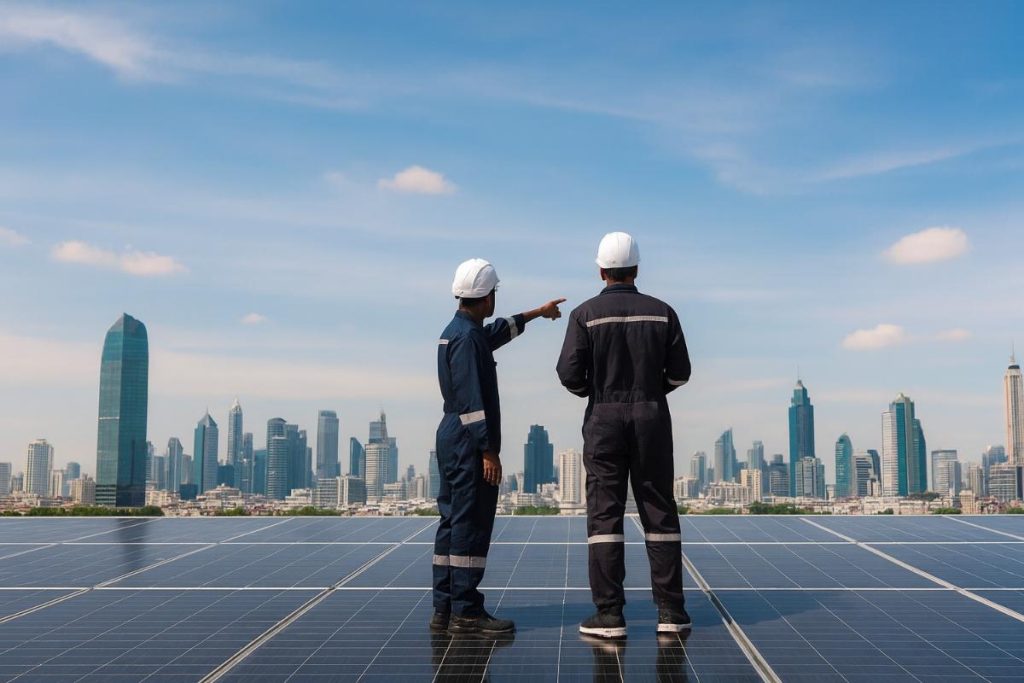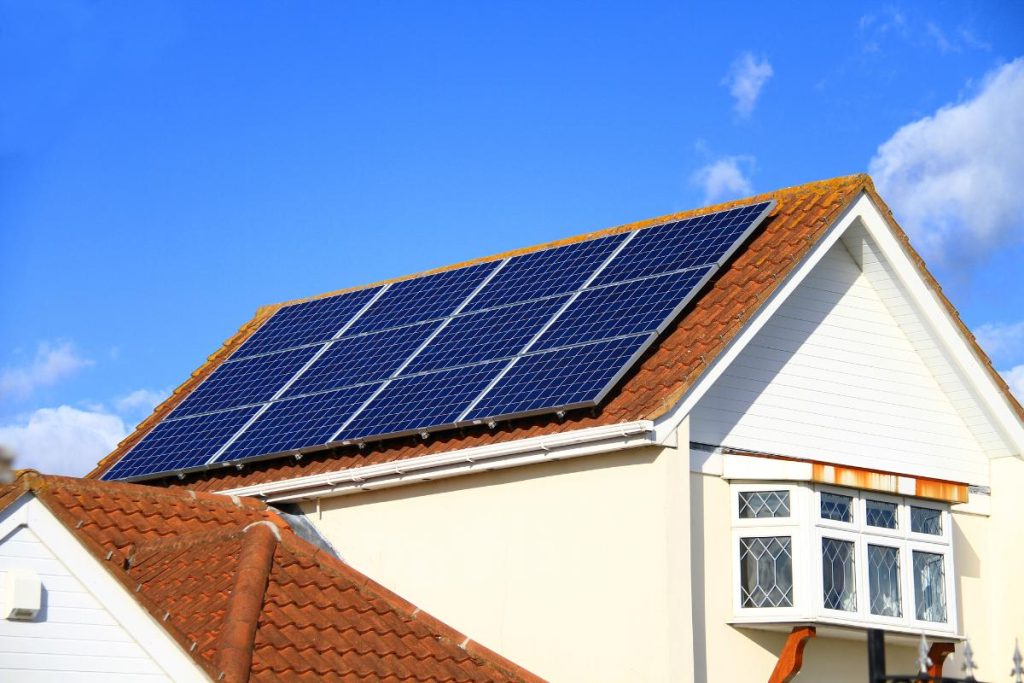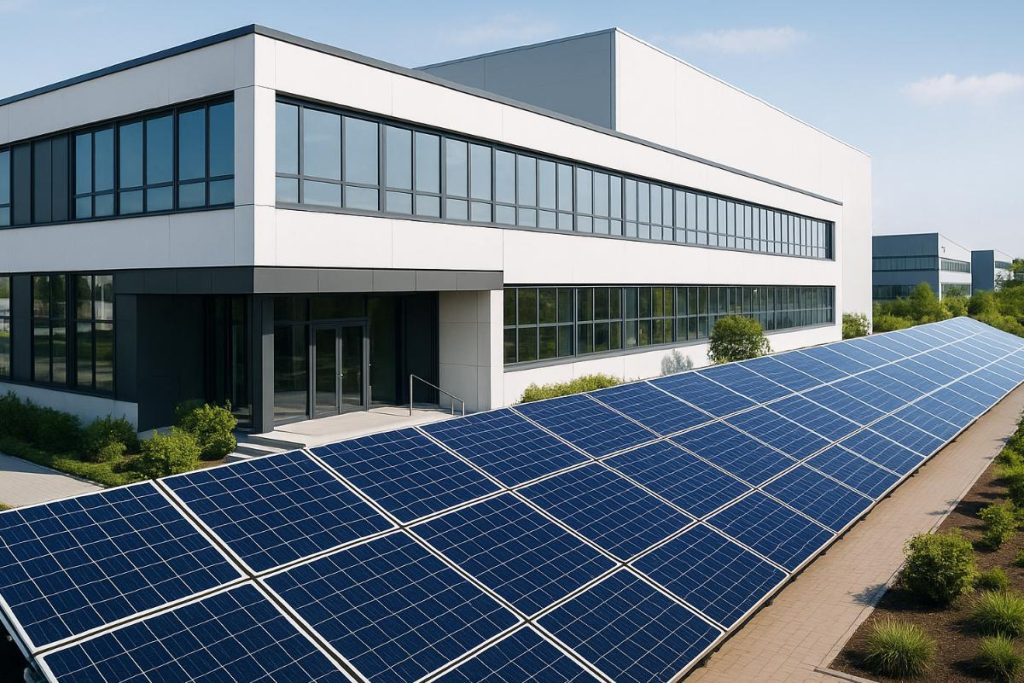Charging an electric car can be surprisingly economical compared to filling up a gasoline vehicle. But how much it costs to charge an electric car in everyday life in Brazil? On average, the cost per kilometer driven by an electric car is a fraction of the cost of a combustion car. In this comprehensive guide, you'll find out the real cost of recharging batteries at home and at public charging stations, with practical, comparative examples e saving tips even more.
By the end, you'll understand why electric charging is not only cheaper, but also more efficient and sustainable, and how to make the most of these savings by installing your own home charger.
Cost of charging an electric car at home
Charging your electric vehicle at home is usually the way to go. cheaper and more practical to keep it ready to run. The cost depends mainly on the size of the car battery and the energy tariff in your region (kWh value on the electricity bill). For calculate the cost of rechargingYou simply multiply the capacity of the battery (in kWh) by the price of the kWh. For example, a vehicle with a 40 kWh battery recharged in a home where the kWh costs R$0.70 generates an expense of R$28,00 to fill the battery (40 × 0.70).
Practical example: O BYD Dolphin, a compact electric car with a ~45 kWh battery, costs around R$45,00 to fully charge in São Paulo (residential tariff ~R$1/kWh). With this energy, he drives approximately 290 km, while a gasoline car would spend more than R$100,00 in fuel to travel the same distance. In other words, the savings are remarkable. What's more, you'll rarely need to charge from 0 to 100% every day; many owners keep the level between 20% and 80%, which extends battery life and reduces the charging time required. In practice, 100 km driven with an electric can cost as little as R$ 9.00 in electricity (considering an average consumption of 0.15 kWh/km and a residential tariff of around R$ 0.60/kWh), a much lower figure than the ~R$ 35-40 that an ordinary combustion car would spend on gasoline for the same distance.
Another advantage is the possibility of saving even more by using white tariff of electricity. This tariff modality (offered by utilities, upon request) charges lower prices outside peak hours. So scheduling your EV charging for the early hours of the morning or other off-peak times can significantly reduce the cost per kWh. Many owners already take advantage of the reduced night tariff to charge your electric car for even lesswithout impacting your daily routine. It's worth checking with your distributor about this option (White Tariff) and assess whether it is advantageous in your case.
Cost of charging at public stations and electro-posts

*Image for illustrative purposes only
When you recharge away from home - in parking lots, shopping malls or public charging stations - the costs tend to be higher than on the home network, but they are still usually lower than those of fossil fuels. Today, there is a growing network of electroposts by Brazil, including the BYD Recharge which maps thousands of connected public charging points. Prices at these locations vary depending on the operating company and the speed of the charger:
- Semi-fast public chargers (AC up to ~22 kW): Many shopping malls, supermarkets and car dealerships offer charging free or low cost for customers. Some places may charge for parking or a flat fee, but they don't charge for the kWh itself, great for "topping up" the battery while you shop.
- Standard fast chargers (DC ~50 kW): They are generally charged per energy consumed (R$/kWh). In Brazil, typical tariffs range from R$1,50 to R$2,50 per kWh in fast stations. For example, networks such as Tupinambá, Shell Recharge and others charge around R$1.50-R$1.95/kWh for 50 kW chargers. Thus, charging 100 km of autonomy (around 15 kWh) would cost around R$22,50 at these stations - still below the cost of gasoline to travel the same distance.
- Ultra-fast chargers (DC ≥150 kW): They offer very fast recharging (full battery in minutes), but at a higher cost. In some high-powered electroposts, the cost can be as high as R$2,50-R$3,50 per kWh. In such cases, completely filling a large battery can cost close to R$150.00.
This mode is useful for trips and emergencies due to its speed, but the price per kilometer driven can be close to that of conventional fuels if the rate is too high. It's worth noting that some networks also charge activation rate (a fixed amount per charging session) and penalized with a idleness if the vehicle remains plugged in occupying the space after completing 100% of charging. It is therefore advisable to remove the car at the end of the quick recharge to avoid extra charges and free up the station for another driver.
Even with the trend towards the end of unrestricted free charging at electric stations, charging an EV at public stations still cheaper than filling up with gasolinein most scenarios. In addition, the convenience is a strong point: in travel situations or when you are away from home, public chargers make it possible to recover a good part of the battery in a short time, guaranteeing mobility. Many apps (such as the BYD Recharge) allow you to locate the nearest station, check the price per kWh at each location and even book a place in advance, so you can plan your route and expenses of your electric journey intelligently.
For a quick overview, see cost comparison to run the same thing with different power sources:
| Power Source | Approximate cost for 100 km |
| Electric car - Recharge at home | R$ 9 (residential tariff) |
| Electric car - Paid public recharge | R$ 22 (fast food) |
| Combustion car - Petrol | R$ 40 (regular gasoline) |
Note: Estimated values for an average electric car (consumption ~15 kWh/100 km) and a 1.0 flex-fuel car (consumption ~15 km/L, gasoline ~R$ 6/L). Actual costs vary according to vehicle model, efficiency, local electricity and fuel prices. Nevertheless, the trend is clear: Streetcars are much less expensive to run than running on gasoline or ethanol.
Tips to save even more on recharging

Although the electric car already offers considerable savings, you can further reduce spending with a few simple strategies:
- Charge at times when energy is cheapest: As mentioned, take advantage of white tariff or off-peak times to recharge at home. Scheduling charging for late at night or early in the morning (when there is less demand on the grid) can save a lot of money on your electricity bill. Many homes already have electronic meters that allow this, so check with your local utility for tariff options.
- Use solar energy to your advantage: If you have a photovoltaic system solar panels) generating electricity, the cost of charging your car drops dramatically. During the day, solar energy can directly power the charger, practically zeroing out the additional expense on the bill. With a BYD photovoltaic module system installed, for example, you can turn the sun into fuel for your vehicle, clean energy and practically free of charge after the initial investment. (Tip: If you're interested in generating your own energy, check out our photovoltaic modules e solar inverters.)
- Consider stationary storage batteries: Systems energy storage Home batteries (stationary batteries) allow you to store energy from the grid or your solar panel to use for charging your car at peak times or in emergencies. In the event of a blackout or grid failure, those with batteries can keep essentials running and even charge their vehicle, avoiding damage and inconvenience associated with power outages. This energy security is becoming more affordable, with battery prices falling by around 90% in the last 15 years. In other words, in addition to the financial savings, there is a gain of autonomy and energy independence by integrating solar panels + batteries + electric car. (Learn more about BYD's energy storage.)
- Charge for free when possible: Take advantage of the free chargers offered at destinations you frequent. Many shopping malls, supermarkets, hotels and parking lots provide free charging station for customers, as a service differential. Whenever you park in a place like this, it's worth plugging in your car, even if it's for a short time, as it helps to increase autonomy at no cost. Just remember to respect the rules of the place and release the space after recharging what you need.
- Plan recharges when traveling: On long journeys, use apps (such as BYD Recharge or PlugShare) to locate charging stations along your route. This way, you can choose stations with more friendly rates and even check in real time if the charger is available. Good planning means you don't have to rely on expensive charging stations at the last minute and ensures you arrive at your destination without any hiccups.
- Keep your EV efficient: Finally, driving and maintenance habits also indirectly influence the cost per km. Driving smoothly, taking advantage of regenerative braking when decelerating and keeping the tires inflated contributes to the vehicle's greater energy efficiency. The lower the consumption (kWh/km), the less you spend on each refillIn the long run, energy savings become money savings.
It's worth it for your pocket and for the future

*Image for illustrative purposes only
How much does it cost to charge an electric car? Much less than you would spend on fossil fuels to cover the same distance. Whether it's charging at home for pennies per kilometer or using the public infrastructure, which is still cost-effective, the electric vehicle proves its worth in practice. excellent value for money in everyday life. In addition, electric recharging stands out for its convenience - you "refuel" while the car is parked in the garage or while doing other activities - and for its sustainability, drastically reducing local emissions and dependence on non-renewable fuels.
If you already drive an electric car or are thinking of buying one, consider installing a home charger to maximize convenience and savings. With a wallbox of your own, you can charge at the best times, more safely and quickly than a standard socket, and further increase your independence in mobility. Install your own BYD charger and save even more with your electric car, talk to our experts now.
FAQ - Frequently Asked Questions about the cost of charging an electric car
How much does it cost to charge an electric car at home?
The cost will depend on the vehicle's battery and the electricity tariff. On average, charging at home costs R$0.50 to R$0.70 per kWh. This means that recovering 100 km of autonomy can cost as little as R$9 to R$15 in most regions. For example, for a car with a ~45 kWh battery, a typical full charge is around R$30 to R$45This gives a range of around 250-300 km (much cheaper than spending R$100+ on gasoline for the same distance). If your electricity bill has a white tariff, charging at dawn can be even cheaper.
Does charging an electric car increase your electricity bill?
Despite adding new consumption to the home, the impact on the electricity bill is relatively small. small near fuel economy. Suppose you drive your streetcar ~1,000 km per month, with average efficiency, this will consume around 150 kWh. If a residential kWh costs R$0.60, we're talking about R$90.00 more on the bill. By way of comparison, a gasoline car would spend around R$350.00 on fuel to travel the same 1,000 km. In other words, the electricity bill goes up a little, but it's more than offset by the drastic reduction in gas station costs. In addition, using solar energy or reduced tariff schedules will reduce the impact on your bill even further.
Do you have to pay to charge an electric car in public places?
It depends on the place. Many establishments offer free charging To attract customers, you can find shopping malls, supermarkets, hotels and car dealerships that allow you to plug in your car free of charge while you're there. Now public charging stations (especially the fast ones on highways or in urban centers) usually charge for the energy supplied, typically between R$1.00 and R$2.50 per kWh. Some also charge an initial fee per charging session.
Even at paid stations, the price per km driven is usually cheaper than gasoline. The tip is to use apps such as BYD Recharge to check in advance whether the station you want is free or paid and how much is charged, to avoid surprises.
Is it cheaper to charge an electric car or fill up with gas?
Charging an electric car is significantly cheaper. In terms of cost per kilometer, the electric car wins hands down. A typical electric car costs around R$ 0.08 to R$ 0.15 per km in electricity (depending on the tariff), while a combustion car spends around R$ 0.35 to R$ 0.50 per km with gasoline (depending on the model and the price of a liter). In other words, driving an EV can cost as little as a third or less of the cost of running an equivalent combustion vehicle. This difference translates into hundreds of reais in monthly savings for those who drive a lot. So, even considering some extra expense on the electricity bill, the economic advantage of the streetcar remains evident on a daily basis.
What is the cost per km of an electric car?
On average, the cost per kilometer of an electric car is in the range of R$0,10 (ten cents). This figure takes into account a typical consumption of 0.15 kWh/km and an energy tariff of around R$0.60/kWh. In other words, each kilometer traveled consumes approximately 9 cents of Brazilian real in electricity. More efficient models can reach 6-7 cents per km, while more powerful ones can be as low as 12-15 cents/km, still well below the ~40 cents/km of a modern gasoline car. It's worth remembering that if you take advantage of your own solar energy or free charging points, the cost per km of your electric car can be virtually zero in certain situations, further expanding the economy.

